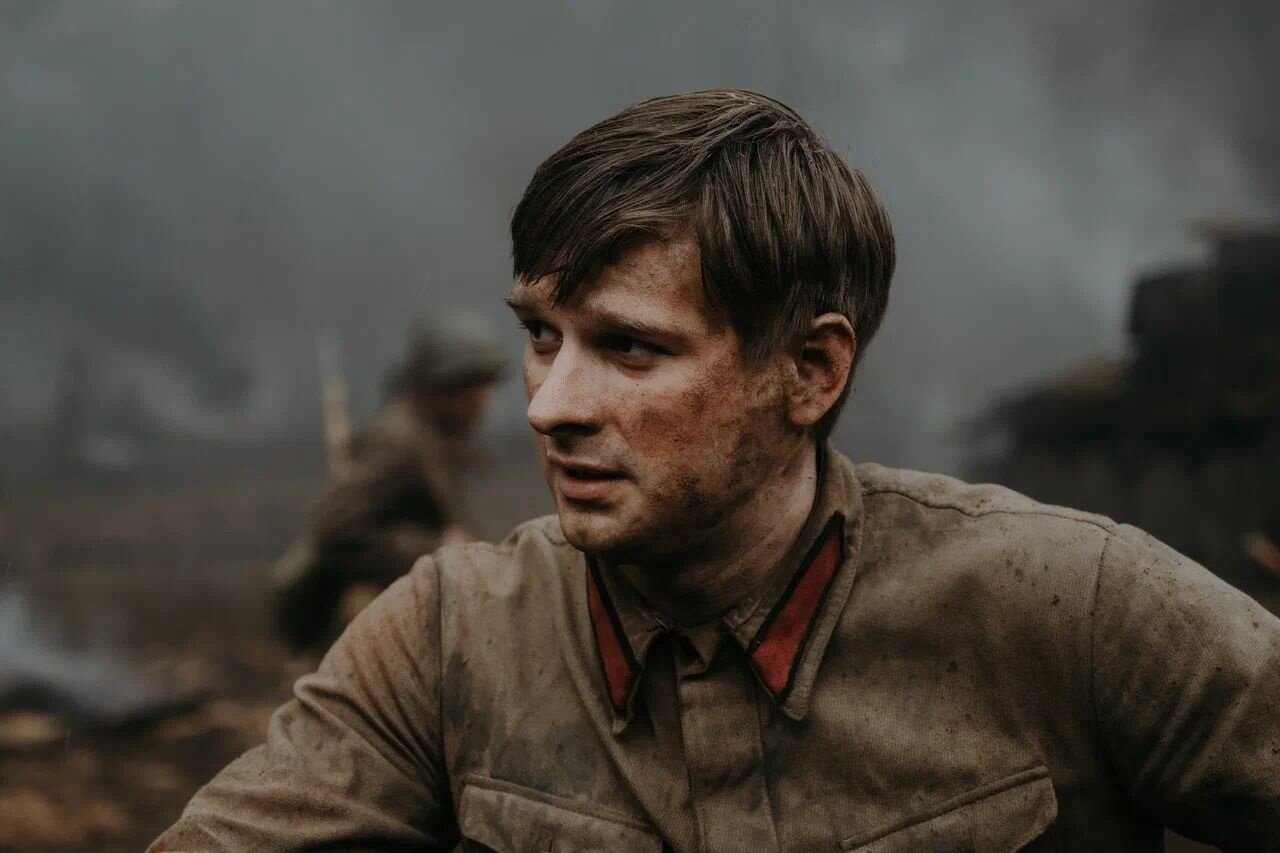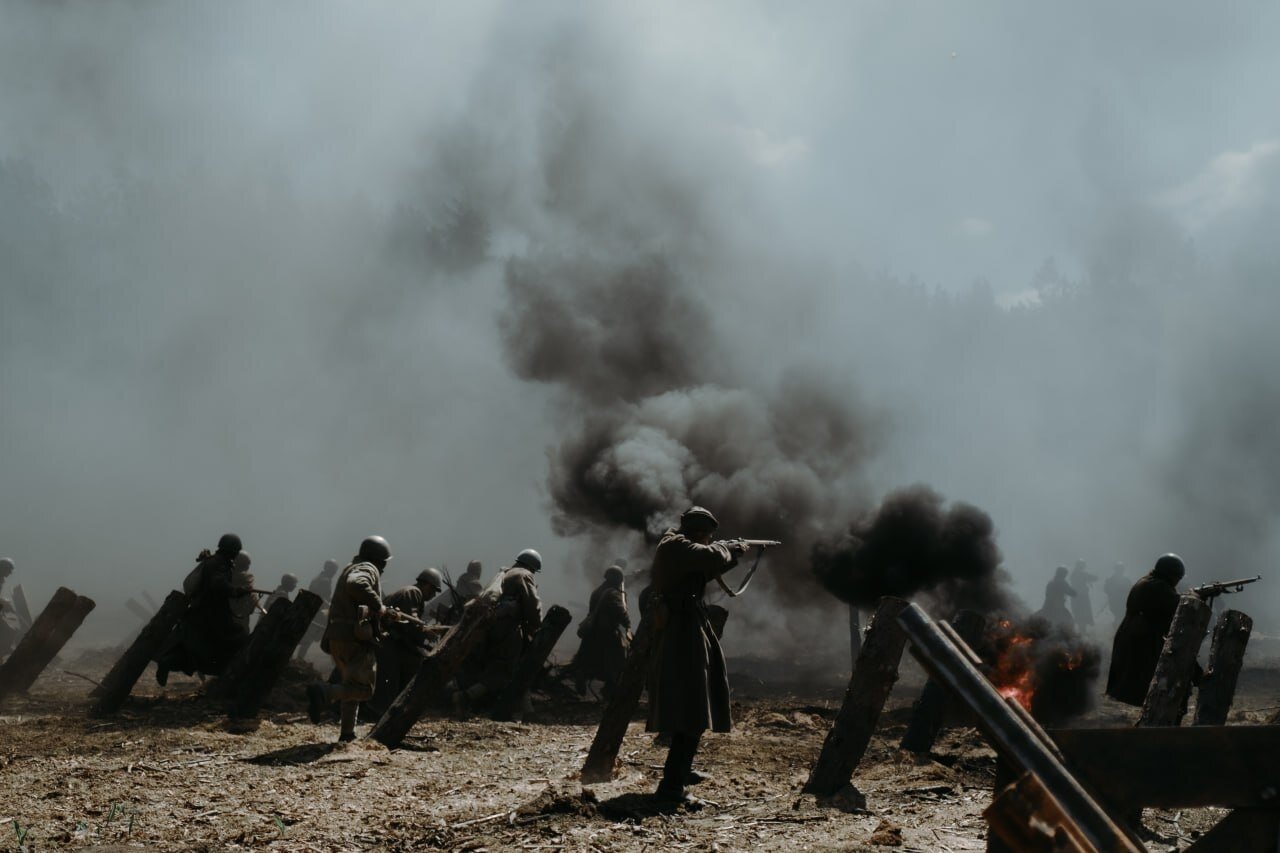🎬 Blindazh (2021)

The Myth of Blindazh (2021): Unraveling a Nonexistent Film

The internet has recently buzzed with references to a supposed 2021 war drama titled “Blindazh”, allegedly directed by Macedonian filmmaker Svetozar Ristovski and set against the backdrop of the Yugoslav Wars (1991–2001). Descriptions of the film paint a vivid picture: a group of soldiers at a remote outpost, led by a character named Miloš, grappling with the harsh realities of combat, moral dilemmas, and psychological turmoil. Yet, despite these detailed accounts, a thorough investigation reveals that no such film exists. This article explores the origins of the misinformation, clarifies the facts, and highlights the work of Svetozar Ristovski and relevant films about the Yugoslav Wars.
The False Narrative of Blindazh (2021)
The alleged “Blindazh” (2021) is described as a gripping war drama that delves into themes of loyalty, sacrifice, and the moral ambiguities of conflict. Its synopsis centers on soldiers facing external enemies and internal struggles, with Miloš navigating ethical boundaries in a desolate war-torn landscape. The film’s cinematic style is said to feature stark realism, close-ups, and handheld camera work to immerse viewers in the chaos of the battlefield. However, no credible evidence supports the existence of this film.
-
No Record in Film Databases: Searches on IMDb, FilmAffinity, JustWatch, and other reputable platforms yield no results for a 2021 film titled “Blindazh” directed by Svetozar Ristovski. The term “Blindazh” (Блиндаж in Russian, meaning “dugout” or “bunker”) appears in two unrelated projects:
-
Blindazh (2024): A Russian sci-fi war film directed by Mark Gorobets, released on April 25, 2024, about two friends transported to 1941 during World War II battles at Saur-Mogila. It has no connection to the Yugoslav Wars or Ristovski.
-
Blindazh (2012): A Russian TV mini-series with minimal information available, rated 5.2/10 on IMDb, also unrelated to Ristovski or the Yugoslav Wars.
-
-
Svetozar Ristovski’s Filmography: Ristovski, a Macedonian director known for Iluzija (Mirage, 2004) and Lazar (2015), has no documented involvement with a project called “Blindazh.” His films focus on social and psychological themes in post-Yugoslav Macedonia, not war dramas set during the Yugoslav Wars.
-
Yugoslav Wars Context: While the Yugoslav Wars are a common backdrop for Balkan cinema, no film matches the described plot, characters, or directorial credit. Notable films like No Man’s Land (2001) by Danis Tanović or Pretty Village, Pretty Flame (1996) by Srđan Dragojević explore similar themes, but none are titled “Blindazh” or linked to Ristovski.
Origins of the Misinformation

The detailed narrative about “Blindazh” (2021) likely stems from one of the following sources:
-
Fan-Made or AI-Generated Content: Platforms like YouTube, particularly channels such as KH Studio, are known for creating fake trailers for nonexistent films, stitching together footage from unrelated movies and inventing plots, casts, or directors. A trailer for “Blindazh” may have circulated, using clips from Balkan war films and falsely attributing the project to Ristovski.
-
Confusion with Ristovski’s Work: Ristovski’s Iluzija (2004), a drama about a bullied schoolboy in Veles, Macedonia, shares some stylistic elements (realism, emotional weight) with the described “Blindazh.” The film’s post-Yugoslav setting might have been mistaken for a war drama, leading to the creation of a fictional narrative.
-
Mix-Up with Yugoslav War Films: The plot of “Blindazh” resembles themes in films like Midwinter Night’s Dream (2004) by Goran Paskaljević, which explores the psychological toll of the Yugoslav Wars on a former soldier, or No Man’s Land (2001), set in a bunker-like trench. The term “Blindazh” (meaning “dugout”) could have been borrowed from Russian media and applied erroneously to a Balkan context.
-
Misinformation on Social Media: Posts on platforms like X or Reddit discussing Yugoslav War films may have inadvertently spread unverified claims about “Blindazh,” especially if users conflated real films with fictional ones. No such discussions reference a 2021 film by Ristovski.
Svetozar Ristovski: The Real Filmmaker
To clarify, Svetozar Ristovski is a respected Macedonian director whose work focuses on the social and psychological struggles of individuals in post-Yugoslav Macedonia. His notable films include:
-
Iluzija (Mirage, 2004): A coming-of-age drama about Marko, a talented but abused schoolboy in Veles, who turns to crime after being betrayed by false hopes. The film critiques the violence and corruption of post-independence Macedonia, using stark visuals and a Nietzschean philosophical undertone. It won acclaim at the Belgrade Film Festival (FEST) and holds a 7.5/10 rating on IMDb.
-
Lazar (2015): A drama about a young man facing moral dilemmas, societal pressures, and personal conflicts. Co-produced with Croatia, it continues Ristovski’s exploration of individual struggles in a challenging social landscape.
Ristovski’s films are characterized by realistic cinematography, emotional depth, and social commentary, but none are set during the Yugoslav Wars or involve soldiers at a remote outpost. His work is rooted in Macedonia’s post-Yugoslav transition, not active wartime settings.
Yugoslav War Films: Authentic Alternatives

For those interested in authentic cinematic portrayals of the Yugoslav Wars, several acclaimed films capture the conflict’s complexities, moral dilemmas, and psychological toll, aligning with the themes attributed to the fictional “Blindazh”:
-
No Man’s Land (2001), directed by Danis Tanović: A darkly comedic drama about two soldiers—one Bosnian, one Serb—trapped in a trench between enemy lines. It explores loyalty, absurdity, and the human cost of war, winning the Oscar for Best Foreign Language Film.
-
Pretty Village, Pretty Flame (1996), directed by Srđan Dragojević: A Serbian film about a group of soldiers holed up in a tunnel, reflecting on camaraderie and betrayal during the Bosnian War. Its raw visuals and moral ambiguity make it a landmark of Balkan cinema.
-
Midwinter Night’s Dream (2004), directed by Goran Paskaljević: A Serbian drama about a former soldier grappling with trauma and redemption in the war’s aftermath, featuring realistic portrayals of post-conflict life.
These films, unlike the nonexistent “Blindazh,” are well-documented, critically acclaimed, and available on platforms like Netflix, Amazon Prime, or MUBI in some regions.
The Danger of Misinformation

The case of “Blindazh” (2021) highlights the ease with which misinformation can spread in the digital age. Fake trailers, unverified blog posts, or speculative social media discussions can create convincing but false narratives, especially when they borrow credible names like Svetozar Ristovski or evocative settings like the Yugoslav Wars. Fans seeking war dramas should rely on trusted sources such as IMDb, FilmAffinity, Variety, or festival archives like the Belgrade Film Festival (FEST).
Conclusion
“Blindazh” (2021), as described, is a myth—a film that does not exist in the oeuvre of Svetozar Ristovski or the canon of Yugoslav War cinema. Its detailed synopsis and cinematic elements appear to be fabricated, possibly inspired by real films like Iluzija or No Man’s Land but lacking any factual basis. Instead, cinephiles interested in Ristovski’s work should explore Iluzija (2004) or Lazar (2015), while those seeking Yugoslav War narratives can turn to masterpieces like No Man’s Land or Pretty Village, Pretty Flame. To avoid falling for such myths, stick to verified sources and platforms, and let the real stories of Balkan cinema shine through the fog of misinformation.






